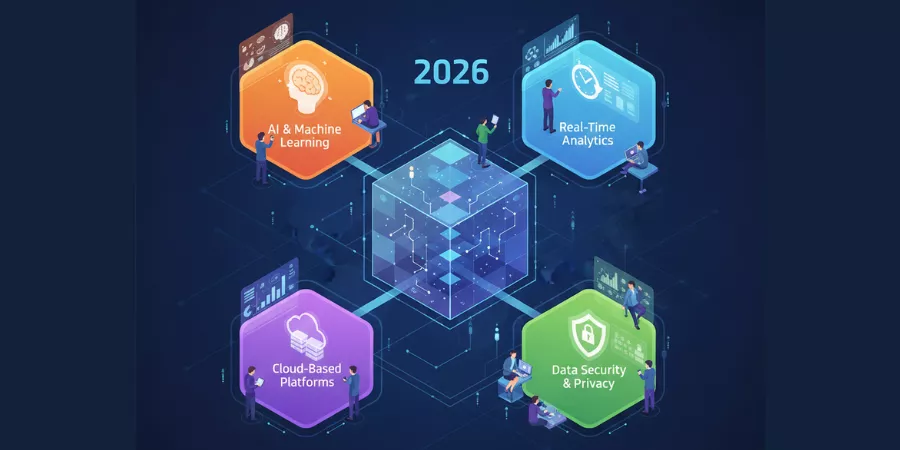You know how it is: you’ve got these great ideas for new software, but getting them out there feels like forever. Updates are a pain; strange problems keep popping up, and everything just moves so slowly. If that sounds familiar, you’re in good company. Lots of businesses struggle with making their bright ideas happen fast enough for their customers.
It’s incredibly annoying, isn’t it? You want your business to be quick and adaptable, but sometimes, it feels like your tech team are always occupied with something.
The Old Way: A “Blame Game” Waiting to Happen
For a long time, the world of software was pretty much split down the middle. You had the “Developers” who wrote all the code, and then the “Operations” folks whose job was to make sure that code actually ran smoothly on the computers. They often lived in their own little worlds, rarely talking.
- The developers would often say, “Hey, it works perfectly on my computer!”
- And the operations team would groan, “Well, it’s definitely not working on the server!”
This created what we often called “silos” – imagine two separate departments, barely talking, just tossing their finished work over a wall to the other side. This led to all sorts of messy situations:
- Slow Hand-offs: Every time code needed to move from one team to the next, it was like a complicated relay race where the baton kept getting dropped.
- Surprise Problems: Things that seemed fine in development would suddenly break when they went live, leading to frantic, late-night fixes.
- The Blame Game: When something went wrong, fingers often pointed back and forth. No one felt truly responsible for the whole journey from idea to customer.
- Delayed Updates: Getting new features or even small fixes out to customers became a painfully slow process, which really hurt the business.
Enter DevOps: Tearing Down the Walls
This is where DevOps steps in. It’s not a new piece of software you buy or a quick trick. Instead, DevOps Certification is a fresh way of thinking about how people work together. It’s about bringing those two traditionally separate groups – the folks who write the code (developers) and the ones who make sure it runs smoothly (operations) – much closer. They stop just throwing their work over a wall and start building things hand in hand.
Imagine it like this: instead of a disjointed relay race where the baton keeps getting dropped, DevOps is like everyone on the team running side-by-side, sharing the same goal. The main ideas behind it are simple:
- Working Together: Developers and operations people chat constantly, right from the very beginning of a project. They share tools, common goals, and even pitch in on each other’s tasks.
- Doing Things Automatically: All the boring, repetitive stuff – like checking code for mistakes or getting it ready to go live – gets handled by computers. This frees up smart people for more creative, interesting work.
- Smooth, Constant Flow: New code and fixes get tested and sent out often, in small, easy-to-handle pieces. This means fewer huge, risky updates and more regular, small improvements.
- Always Learning: Teams keep a close eye on how the software is doing once it’s out there. They use what they learn to make things even better for the next round of updates.
How DevOps Changes Everything for Your Team
When teams truly adopt the DevOps approach, you start seeing some pretty amazing changes:
- Faster Software Delivery: New features and fixes can reach your customers much, much quicker – sometimes multiple times a day! This means your business can react to what people want and what the market is doing, almost instantly.
- Quicker Fixes: Because work happens in tiny nodes, errors are easier to spot and fix right away, before they become a big risk.
- Less Stress: Repetitive tasks are automated, teams are at ease, and more effective. This creates a team-work where all are solving problems together.
- Better Quality, More Reliable Software: Constant checks and feedback loops mean the software you put out is simply higher quality, more dependable, and safer.
- Real Business Wins: All this speed, quality, and teamwork directly translates into a stronger business. You can innovate faster, keep customers smiling, and stay ahead of the game. Even modern tech designs, like building apps from tiny, independent pieces (often called ‘microservices’), really thrive when you use DevOps principles.
Who Makes This Magic Happen? The DevOps Engineer
The person who often helps make all this happen is the DevOps engineer. They’re the skilled folks who set up the tools, build the automatic workflows, and foster the teamwork needed for DevOps to truly click. They’re the ones bridging the gap, making sure code flows smoothly from an idea all the way to your customers. That’s why diving into a good DevOps engineer course is becoming so valuable.
Your Next Move: Becoming a DevOps Game-Changer
If you’re eager to make a real difference in how businesses thrive online, and you want to be the one who makes their tech journey smooth and strong, then learning these skills can absolutely open up new doors for your career.
Getting a DevOps certification really shows you know your stuff. Whether you’re aiming for an AWS DevOps certification or an Azure DevOps certification to get your foot in the door or looking for a more advanced DevOps engineering certification down the line, getting the right training is how you build that expertise. If you’re searching for the best DevOps course, a structured DevOps certification course can make all the difference.
Ready to learn how to help teams build faster and better? To truly understand these modern ways of working, a solid DevOps certification training programme is your next step.
Take the next step in becoming an essential DevOps builder. Explore Sprintzeal’s specialised DevOps Certification Training today!















